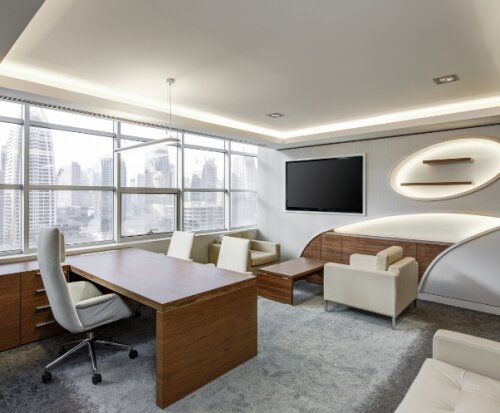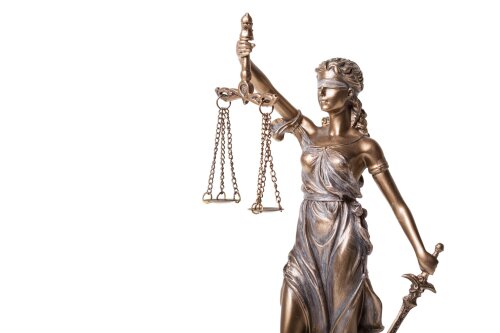Best Sanctions & Export Controls Lawyers in Blumenau
Share your needs with us, get contacted by law firms.
Free. Takes 2 min.
List of the best lawyers in Blumenau, Brazil
About Sanctions & Export Controls Law in Blumenau, Brazil
Sanctions and export controls law in Blumenau, Brazil, is a branch of legal regulation that addresses the transfer of goods, technology, and services across national borders in compliance with both Brazilian and international rules. The city of Blumenau, being an important industrial and manufacturing hub in the southern state of Santa Catarina, sees a significant volume of exports ranging from textiles to machinery. Brazilian regulations, as well as international sanctions regimes, govern the legality of these cross-border transactions. Compliance with these laws is essential to avoid administrative fines, criminal liability, or reputational damage.
Why You May Need a Lawyer
Navigating sanctions and export controls can be complex and time-sensitive, especially as global regulations change rapidly. Individuals and companies in Blumenau may need a lawyer in situations such as:
- Engaging in international trade and unsure if certain goods or partners are subject to sanctions.
- Launching new export operations that may involve controlled technology or sensitive destinations.
- Receiving inquiries, audits, or investigations from regulatory agencies about potential violations.
- Facing blocked transactions or customs seizures due to suspected export control breaches.
- Needing guidance on developing compliance programs to avoid legal risks.
- Responding to allegations of exporting dual-use or military-related items without proper licenses.
- Resuming business with newly sanctioned entities after regulations change.
Having specialized legal advice can help protect your interests, ensure compliance, and minimize the risk of serious penalties.
Local Laws Overview
Sanctions and export controls in Blumenau fall under federal jurisdiction, governed by Brazilian laws and Brazil's commitments to international agreements. The main legal frameworks include:
- Decree-Law No. 23,258/1933: Lays the foundation for customs and export control procedures in Brazil.
- Brazilian Penal Code, Article 334: Addresses smuggling and customs fraud related to imports and exports.
- National Defense Product Export Regulations (Decree No. 5,484/2005): Governs the export of defense and dual-use goods.
- Central Bank and Secretariat of Foreign Trade (SECEX): Oversee financial transactions and export licensing, particularly with sanctioned countries or entities.
- International Sanctions Compliance: Brazil may adopt United Nations Security Council sanctions and can define its own sanction regimes, impacting local exporters.
Local businesses and individuals must pay careful attention to:
- Obtaining required export licenses for controlled goods.
- Screening partners and customers for sanctions status.
- Keeping accurate records for audits and government requests.
- Staying updated on changes to local or international sanctions lists.
- Complying with anti-money laundering and counterterrorism financing rules connected to export activities.
Frequently Asked Questions
What are export controls and who enforces them in Brazil?
Export controls are laws and regulations that govern the international transfer of certain goods, technology, and services. In Brazil, these controls are enforced by federal agencies such as SECEX, the Receita Federal (Federal Revenue Service), and the Ministry of Defense.
What kinds of products are typically subject to export controls?
Products subject to export controls include military and dual-use items, certain chemicals, electronics, information technology hardware, and goods destined for sanctioned countries or entities.
Do I need a special license to export from Blumenau?
You may need a license if you export controlled goods, services, or technology, or if your customer or destination is subject to sanctions. Routine exports of non-controlled civilian goods may not require special licensing, but you should always verify your product's status.
How do I know if I am doing business with a sanctioned party?
You can check official government sanction lists published by Brazil or refer to international lists (such as those from the United Nations). Legal professionals or trade compliance specialists can assist in screening business partners.
What are the penalties for violating export control laws?
Penalties include administrative fines, revocation of export privileges, seizure of goods, criminal prosecution, and reputational damage. The severity depends on the type and extent of the violation.
Are there special rules for exporting technology or software?
Yes, technology and software that can have military or dual-use applications are often subject to stricter controls. Even sending software updates or technical information by email can fall under export control regulations.
What should I do if my goods are seized by customs?
Engage a lawyer immediately to understand the specific reason for the seizure. You may have rights to appeal or provide additional documentation to resolve the issue.
Can sanctions apply to indirect transactions (via third countries)?
Yes, sanctions can apply to indirect transactions and even to business conducted through intermediaries, so it is important to vet all parts of your international supply chain.
How often do export control laws and sanctions change?
These regulations can change frequently due to international developments or legislative updates, so continuous monitoring is essential for ongoing compliance.
Is there a way to reduce risks of non-compliance?
Developing and maintaining a strong internal compliance program, regularly training staff, and consulting with legal counsel can significantly reduce risks.
Additional Resources
Several resources and governmental bodies can help guide you:
- Secretariat of Foreign Trade (SECEX) - Handles licensing and trade compliance inquiries.
- Receita Federal - Oversees customs enforcement and import or export declarations.
- Ministry of Defense - Regulates the export of defense and sensitive goods.
- Brazilian Ministry of Foreign Affairs - Provides updates on international sanctions adopted by Brazil.
- Brazilian Bar Association (OAB) in Blumenau - Can help you find specialized attorneys.
- Commercial and Industrial Associations - Offer compliance seminars and industry-specific updates.
Next Steps
If you believe you may need assistance with sanctions or export controls in Blumenau, it is recommended to:
- Document your proposed or ongoing transactions, especially any involving unusual destinations or products.
- Contact a qualified lawyer with expertise in international trade law, sanctions, and export controls.
- Prepare all necessary documentation, including contracts, invoices, communications, and export licenses, for legal review.
- Stay up to date with changing regulations by monitoring relevant governmental announcements or seeking periodic legal guidance.
- Consider participating in industry compliance trainings or consultations organized by local business chambers.
Taking prompt, informed action can help protect your rights, minimize risks, and ensure compliance with all applicable sanctions and export control laws in Blumenau, Brazil.
Lawzana helps you find the best lawyers and law firms in Blumenau through a curated and pre-screened list of qualified legal professionals. Our platform offers rankings and detailed profiles of attorneys and law firms, allowing you to compare based on practice areas, including Sanctions & Export Controls, experience, and client feedback.
Each profile includes a description of the firm's areas of practice, client reviews, team members and partners, year of establishment, spoken languages, office locations, contact information, social media presence, and any published articles or resources. Most firms on our platform speak English and are experienced in both local and international legal matters.
Get a quote from top-rated law firms in Blumenau, Brazil — quickly, securely, and without unnecessary hassle.
Disclaimer:
The information provided on this page is for general informational purposes only and does not constitute legal advice. While we strive to ensure the accuracy and relevance of the content, legal information may change over time, and interpretations of the law can vary. You should always consult with a qualified legal professional for advice specific to your situation.
We disclaim all liability for actions taken or not taken based on the content of this page. If you believe any information is incorrect or outdated, please contact us, and we will review and update it where appropriate.











